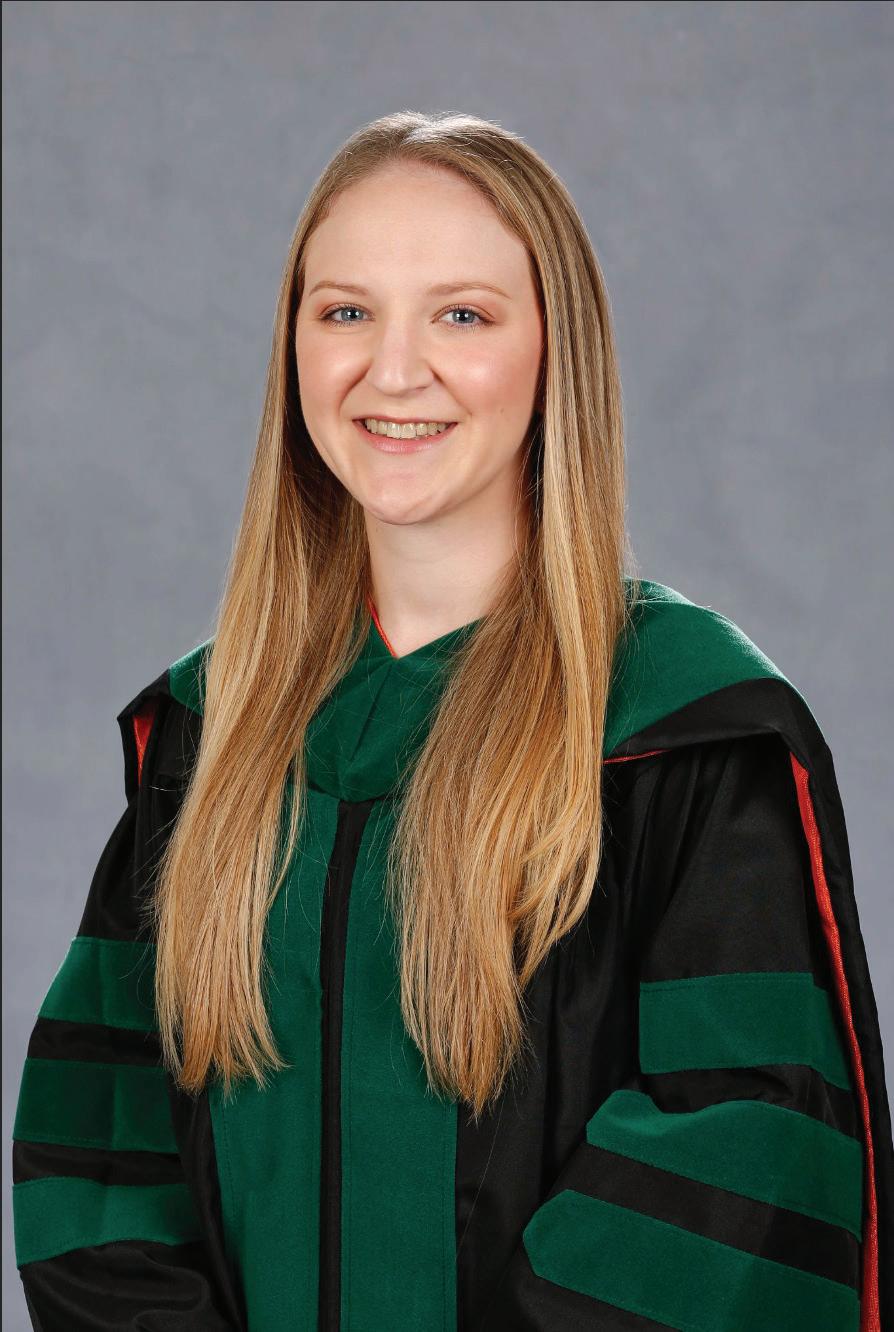
4 minute read
Medical Student Feature Alessandra Della Porta & Tara Tardino

What is your current role in DOCS? What responsibilities does your role entail?
Advertisement
Alessandra: My current role is DOCS is the Emergency Preparedness (EP) Senior Advisor. In this role, I work alongside the project manager, station manager, and team to advance the two aims of our project. First, we aim to better prepare members of our community for everyday emergencies through DOCS health fairs, where we disseminate information about various environmental, medical, and social emergencies. Second, we aim to better prepare the University of Miami student body to respond to emergencies, specifi cally with respect to mass casualty events, such as active shooter training and hemorrhage control.
Tara: I currently serve as DOCS Emergency Preparedness Team Project Manager. I lead the eff ort in organizing community emergency response projects as well as organizing emergency preparedness trainings/educational programming for medical students.
Can you tell us more about the structure of EP and how your team mobilized to eff ectively respond to the COVID-19 pandemic? What challenges did you face?
Alessandra: While the EP team has a rather small core group of leaders and members, we were able to accomplish a successful response to the COVID-19 pandemic. Very early on last March we were contacted by the Poison Control Center (PCC) and Department of Health to assist with the creation of a hotline for disseminating information to community members. Our relationship with the PCC is something that we have fostered for the last several years and we feel incredibly blessed to have access to their resources on our campus. Over the course of the spring and through the early summer, we initiated and maintained a 24/7 hotline to ensure that whoever needed the information could access it. We owe our success to the hundreds of student volunteers who worked tirelessly to staff the hotline with EP. Since that time, we have continued to work on projects both for the PCC and the university to continue educating ourselves and Miami-Dade residents.
Tara: In January of 2020, I served as Assistant Coordinator for DOCS EP with the goal of creating a connection between the PCC and DOCS. I was starting my MPH field experience at the PCC when I took on this DOCS position and planned to facilitate a partnership with the center in which students could come and listen in on calls to the center (from providers and the public) and learn how to manage acute poisonings. Things turned upside down when the COVID-19 crisis began, and although I plan to develop this poison educational opportunity for students moving forward, our team was able to mobilize to address the COVID-19 pandemic instead. On March 9th, 2020, Dr. Weisman, Director of the Center, requested help from the DOCS Emergency Preparedness Team in staffing the hotline. In under 24 hours, our team recruited 48 medical student volunteers to come to the center for training, and within one week over 100 medical students had signed up to volunteer with the hotline. Since the hotline went live over a year ago, more than 200 medical students have volunteered at the hotline, totaling over 1500 volunteer hours (equivalent to 62 full days!!) in community service. As the vaccine rollout began, students were able to respond to calls regarding distribution as well as reports of vaccine adverse events. We offered leadership opportunities to students by way of staffing the volunteer effort and teaching other students on how to respond to calls. We were able to provide a one-of-a-kind learning opportunity for students on how to respond to a pandemic, keep up with ever-changing CDC and Department of Health guidance, as well as how to extend that knowledge to the greater Florida community.
How has your involvement in DOCS impacted your medical school career? Why do you think it is important for medical students to participate in DOCS?
Alessandra: My time with DOCS EP has been truly phenomenal. I have been given a wonderful opportunity to grow my leadership and professional development skills, while serving my community over the last three years. I believe one of the very special things about the University of Miami is the infrastructure for volunteerism in our communities. No matter what your interest, or desired future specialty, there is a way to become involved in DOCS that will allow you to explore you interest while learning the core principles of caring for patients from underserved communities.
Tara: Participating in DOCS provides the opportunity for students to put the knowledge and skills learned in the classroom into action. Through DOCS, students are able to use their toolkit to make real, impactful change in their community.
What lessons and skills have you learned from DOCS that you hope to carry with you in your future career?
Alessandra: As a future emergency medicine physician, my time in DOCS EP has allowed me to interface with communities outside of the traditional context that I will be confined to in the future. To see and discuss emergency prevention with patients, in their own communities where these emergencies occur, has fostered my interest in social emergency medicine. My time in DOCS has prepared me to acknowledge the social context in which patients live and work and the impact on their lives far before they ever reach the steps of the emergency department.
Tara: How to work in a team to respond to real world crisis situations is something I will never forget from the COVID-19 hotline experience.








